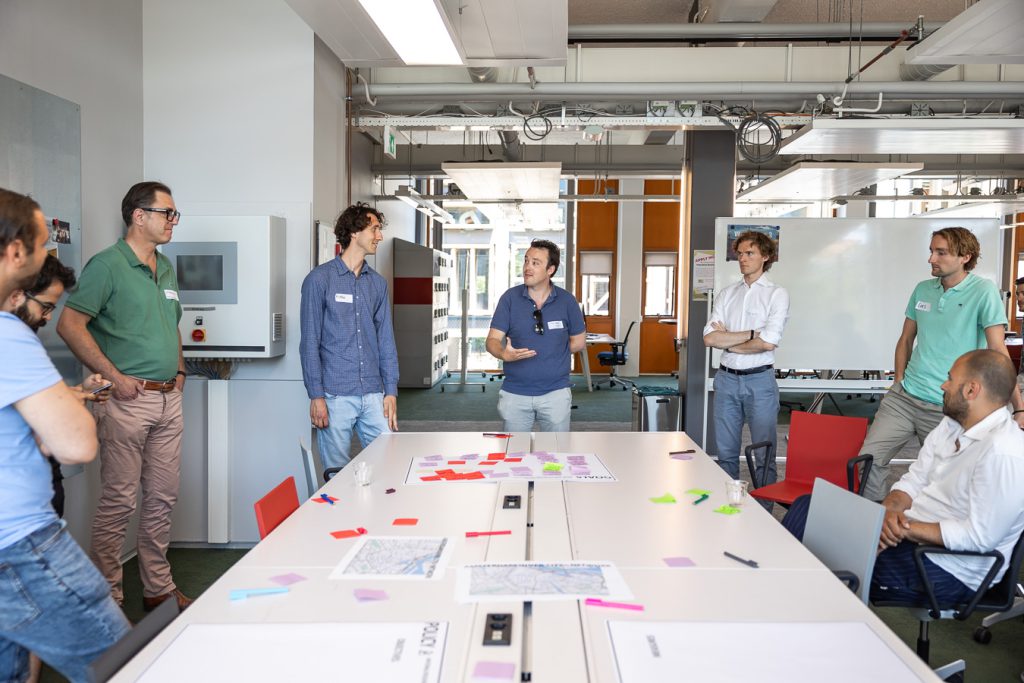On 13 and 14 June 2023, Amsterdam Institute for Advanced Metropolitan Solutions (AMS Institute) organized and hosted an event called ‘Future Mobility for Cities.’ This insightful conference gave professionals from the industry, representatives from municipalities, research associates, and stakeholders in mobility the opportunity to share insights and delve into the prospects of urban mobility.

Spread over the two days, many interesting voices were given a chance to shed some light on the future of mobility. Speakers included Adam Cohen (UC Berkeley), Emilio Tuinenberg (Siemens Mobility), Debbie Dekkers (The City of Amsterdam), Tom Kuipers, Sander Oudbier and Maike Simmes (AMS Institute), Marcus Knoppik (Mercedes Benz), Oded Cats (TU Delft) and our ‘own’ Bart van Arem (TU Delft / XCARCITY).
Shared mobility took center stage in the talks on the first day. Adam Cohen showed the possibilities and obstacles of embracing shared and digital transportation approaches. Emilio Tuinenberg from Siemens Mobility explored the transformative capabilities of demand-responsive transport in revolutionizing public transportation and in doing so, making it more efficient and accessible to all. Debbie Dekkers shared best practices and pilot projects implemented in Amsterdam. The first part of the day was rounded up with an interactive panel discussion featuring the three speakers.
Participants then got the opportunity to learn more about shared mobility in interactive sessions with topics such as the scalability of customized services, the balance between flexibility, accessibility and inclusivity, and the role of shared mobility services in solving urban transportation challenges.
The first day ended with a conclusion by Oded Cats about the results of the CriticalMaaS project.

On day two, the focus lied on low-car cities and behavioral change. Presentations were held by Marcus Knoppik (data, connectivity, and safety) and Bart van Arem, who explored the concept of a city without private cars. Van Arem: “We urgently need a better understanding of new smart mobility approaches to ensure sustainable and inclusive accessibility.” During interactive sessions, participants learned more about a low-car city, contributing to the discussion of how we can ensure a fair and sustainable mobility transition for all citizens.
It was promising to witness the willingness of the mobility sector to bridge the gap between government, businesses, and research. The key is translating the theoretical concepts into practical solutions. Sander Oudbier, one of the organizers of the event, was happy with the outcomes of the event. He summed up his takeaways: “If you never feel pain, why change? Sweet and sour measures should both be considered in making cities more car-free. A good support base for policies for low-car cities (or parts of cities) is crucial, whereas of course there is a difference in to be developed neighborhoods (with new inhabitants) and with already existing neighborhoods). Alternatives to cars should be affordable and mobility poverty should be reduced to zero. Different parts of cities could have various levels of car-freeness. Because although public space should be human-centered, this flexibility in car-freeness is important.’’